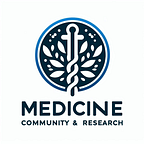The Role of Artificial Intelligence in Healthcare
by Zachary Christensen
AI is gradually gaining a lot of importance and is now harbingered as a revolutionary tool in the system, as it helps in diagnosing, treating, and even developing patient management systems.
In the health care system, the broad fields where most AI is used are diagnosis and treatment. Highly useful in aiding physicians to accurately identify numerous ailments in the early stages or even at a snapshot, emerging technologies such as deep learning can sort through vast quantities of medical information, including clinical images, scans, and electronic health records.
With the help of the diagnostic AI, administrators have the ability to reduce the costs of treatment at the hospital by half and increase the overall well-being of the patients by forty percent. For instance, there is pattern recognition in x-rays with features targeted for the identification of diseases, for example, early-stage cancer, to improve patient care for an individual where therapy is personalized to suit the patient.
AI is also improving how drugs are discovered, with a faster and more efficient method being used as compared to the older versions. It is possible to teach AI using different datasets in the easiest way for diagnosing diseases and finding treatment targets. A few forms of biotechnology are already deploying AI to speed up the drug discovery process.
In the domain of patient engagement and information exchange, AI-enabled VHAs can coordinate patients by giving them personalized health advice, reminding them of medications and treatments, and helping them with chronic diseases. In addition, these assistants can help patients interact with the doctors and other health care providers on a higher level, which will result in a better understanding of their condition and the steps to be taken.
In addition, there is increased application of AI in clerical details in the healthcare sector through arranging appointments, insurance claim processing, and records management. When such processes are automated, healthcare personnel will be more prepared to attend to patients without having to deal with lengthy processes that hinder the smooth delivery of healthcare services.
The go-green initiative and developments in the medical sector are not the only areas that have the application of AI. Insurers have also incorporated AI technology to solve more complex problems, such as pattern analysis on huge datasets for fraud detection and claim patterns, as well as identifying viable ways of pricing that will not attract fraudulent claims.
As with any innovation, there are likely to be issues that need to be addressed, such as concerns over data privacy, patient safety, and physicians’ reception of this technology, but the possibilities of utilizing AI in healthcare are numerous. Looking at the future of AI in healthcare, it is yet to grow as one of the most essential technologies that will improve the healthcare delivery system, thus enhancing the accuracy, efficiency, and personalization of the efforts that are being made in the healthcare system.
References:
Barth, S. (2023b, April 14). AI in Healthcare. ForeSee Medical. https://www.foreseemed.com/artificial-intelligence-in-healthcare
Bengfort, H. (2024, March 6). The role of AI in healthcare. PeopleKeep, Inc. https://www.peoplekeep.com/blog/the-role-of-ai-in-healthcare
